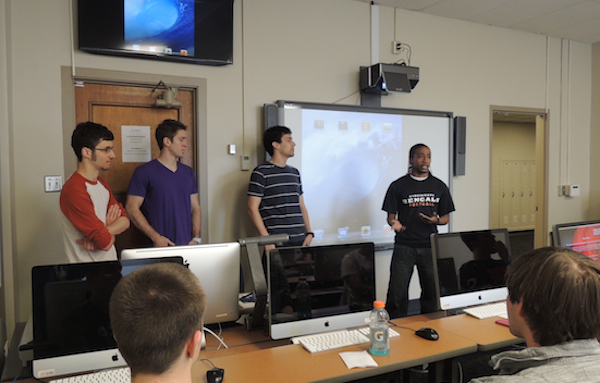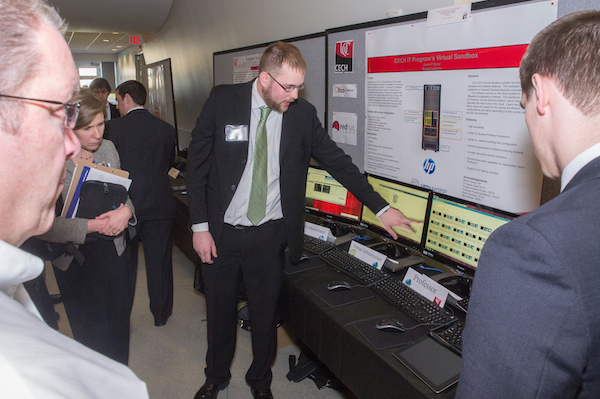UC School of IT awarded exclusive national designation for cybersecurity program
UC program is one of just nine U.S. universities so far to be designated a Center for Academic Excellence in Cyber Defense Education, opening it to special funding and grants in the future.
The University of Cincinnati’s Information Technology School was recently designated by the National Security Administration and Department for Homeland Security as a Center for Academic Excellence in Cyber Defense Education (CAE-CDE), a title awarded to just nine U.S. universities so far. The designation will last until 2021, and in addition to prestige it gives UC’s IT program access to special funding and grants open only to schools with CAE-CDE designation.
The exclusive designation is impressive, especially considering that cybersecurity is still a new program at UC’s School of IT.
“The Cybersecurity specialty (track) accepted its first class of 40 students in the fall of 2014,” School Head and Associate Professor Hazem Said says. “A year later, more than 100 students are selecting cybersecurity as their technical track.”
Said explains that several factors set the UC program apart from many other cybersecurity courses of study. Grounded in the university’s school of Education, Criminal Justice and Human Services, the program supplements the technical skills necessary for cybersecurity expertise with contextual knowledge of business and other disciplines.
The program provides a variety of opportunities for personalization and project-based learning and requires co-ops for on-the-job experience. The program also aims to develop interpersonal skills, most notably communication, with three writing classes required of cybersecurity students and oral presentations wound throughout the curriculum. The goal is for students to be able to communicate the value and concepts of cybersecurity work to a variety of audiences, both with and without technical expertise.
“For the students, this designation significantly increases the value of their degree,” Said says. “The CAE-CDE designation opens experiential experiences in highly advanced and critical functions of the government and the private sector.”
While the term “cybersecurity” might bring up images of the NSA and hacking nuclear programs, UC’s graduates have many more opportunities than just government or military jobs. Said and his colleague ChengCheng Li, Assistant Professor in the School of IT, explain that thanks to the proliferation of digital data cybersecurity impacts all of us every day.
“The data we care about are being digitized,” Said says. “The more we put it on the digital network, the more it becomes not only important but also political. The ’90s were all about efficiency. There’s a lot of work now coming after the fact but also to set up the future.”
Since data is something we all use, more and more companies, from the startup level to Fortune 500, will be interested in hiring cybersecurity analysts in the near future to make sure their data networks are secure, defend them from attacks and gather the data necessary to prosecute attackers if necessary.
“Cybersecurity is becoming more and more important, cybersecurity nationally and cybersecurity locally,” Li says. “We will need more of a cybersecurity workforce in the next decade.”

















